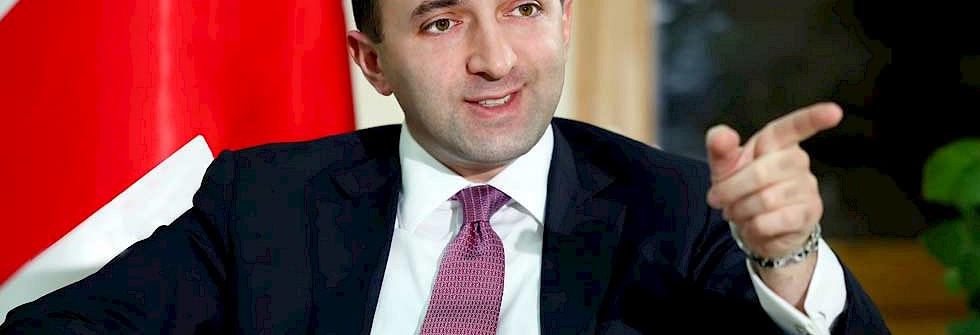Georgians have high hopes for the impact of a recent strategic agreement with the European Union, and are now setting their sights on NATO membership.
After more than a decade of economic, social and political reforms, Georgia’s signing of the EU association agreement on 27th June this year marked a key milestone along the country’s journey towards European integration.
Coupled with a deep and comprehensive free trade agreement (DCFTA), the deal is tipped to boost Georgian exports to the EU by around 12 percent, and also creates attractive conditions for European exports and investments in Georgia.
On the political front, the agreement is seen as a nod from Europe for Georgia’s young democratic institutions and legal framework, although for Alex Petriashvili, the country’s minister of European and Euro-Atlantic integration, this is not the end of the process, but rather the starting point for a country which sees its future as an EU member state.
“It was possible for [Eastern European countries] to join the EU and NATO and still improve their relationship with Russia.”
Dr Maia Panjikidze Minister of foreign affairs
Tweet ThisGeorgia’s European aspirations are backed, according to the minister, by 85 percent of its population, although this does not mean the country has turned its back on its neighbours. Boasting excellent relations with Turkey, Armenia and Azerbaijan, Georgia plays an important role as a regional intermediary. “We are the only country in the region that has good relationships with all three neighbours,” says Maia Panjikidze, minister of foreign affairs.
While the association agreement is not a guarantee of future membership of the EU, it is seen as a step closer, and according to Petriashvili, Georgia’s place is in Europe. “Georgia in Europe is not a recent idea,” he explains. “Culturally and historically, Georgia has always belonged to Europe.”
Now, this Caucasian nation, which has been assisting the NATO-led International Security Assistance Force (ISAF) in Afghanistan since 2004, is looking to further cement its links with the West by seeking full membership of the alliance.
“We want to move forward,” says Panjikidze. “We are ready to contribute more to international security and we are ready to go with our allies wherever we are needed.”
“The basic democratic values and fundamental rights which are appreciated in the European countries are appreciated by us”
Alex Petriashvili Minister of European and Euro-Atlantic integration
Tweet ThisGeorgia’s progress toward EU integration
1992
EU-Georgia relations begin, as Georgia regains its sovereignty following the break-up of the Soviet Union
1999
A partnership and cooperation agreement (PCA), which regulates EU-Georgia bilateral relations, enters into force
2006-2011
An action plan from 2006-2011 involved a significant degree of economic integration and deepened political cooperation
2014
Negotiations of the association agreement, including a deep and comprehensive free trade agreement, concluded in July 2013 and came into force in June 2014
 Prime Minister of Georgia Irakli Garibashvili
Prime Minister of Georgia Irakli Garibashvili
